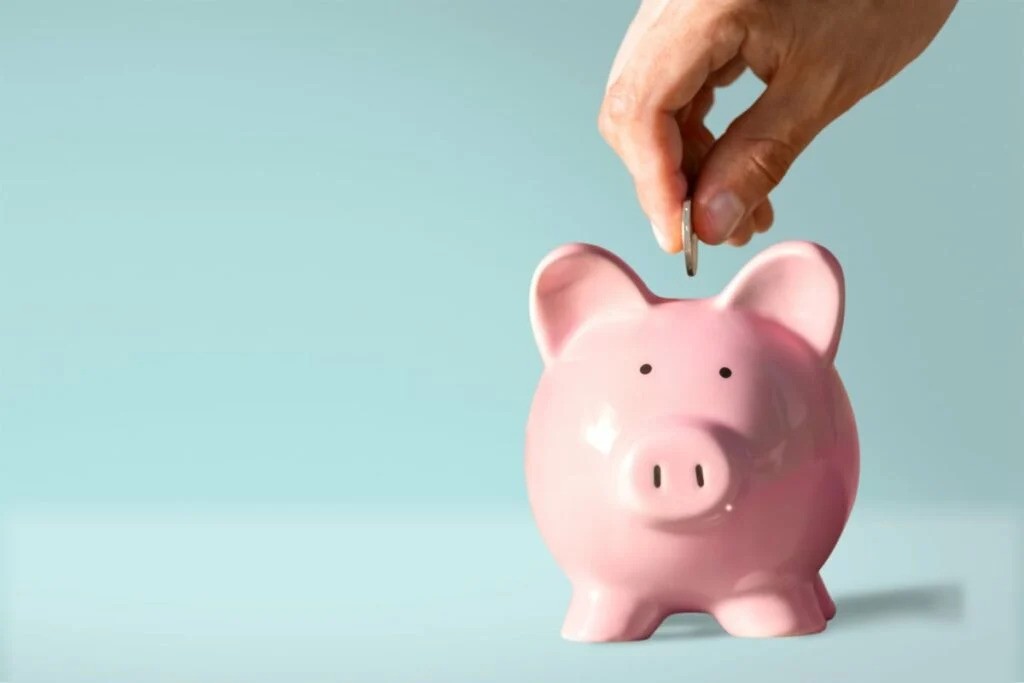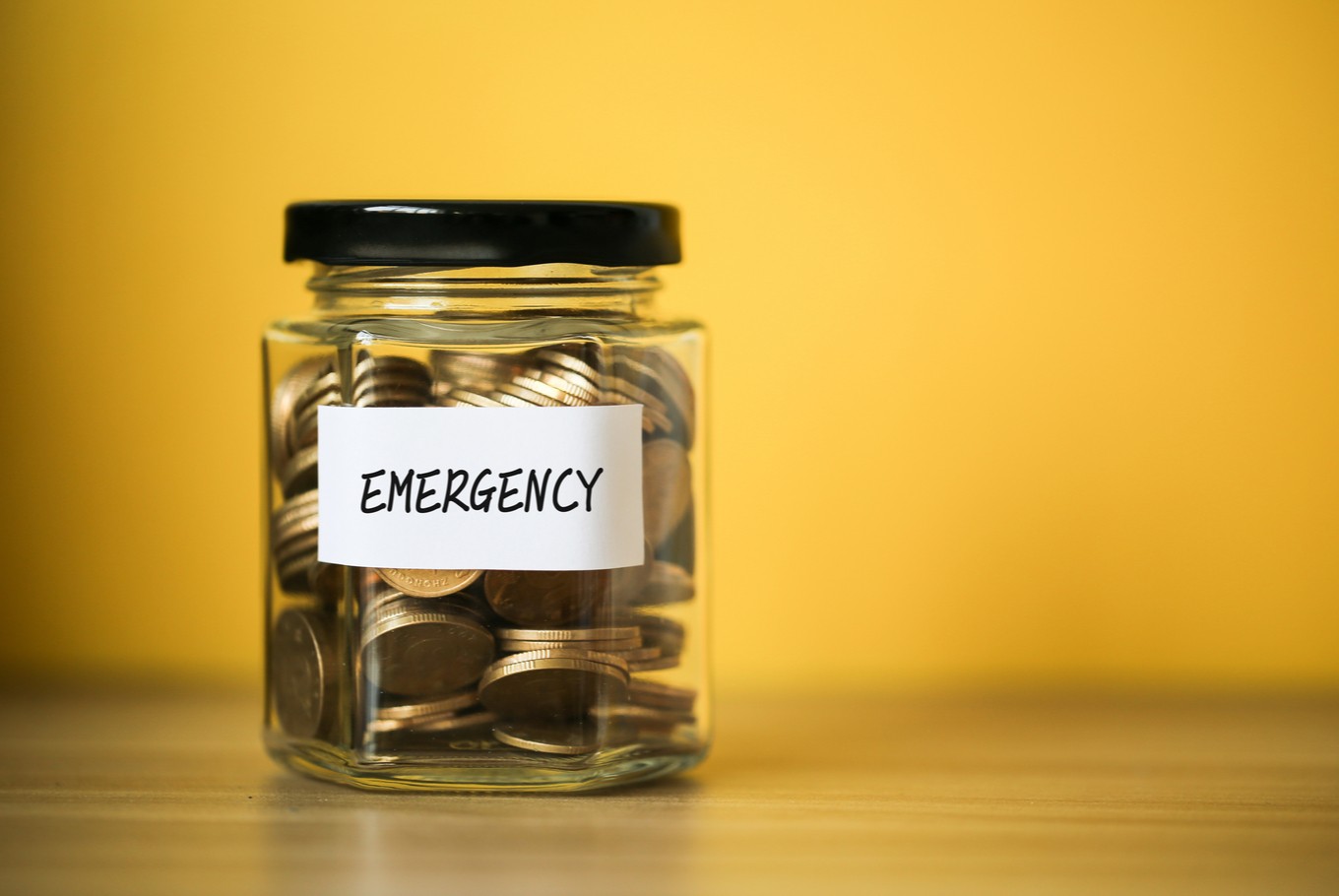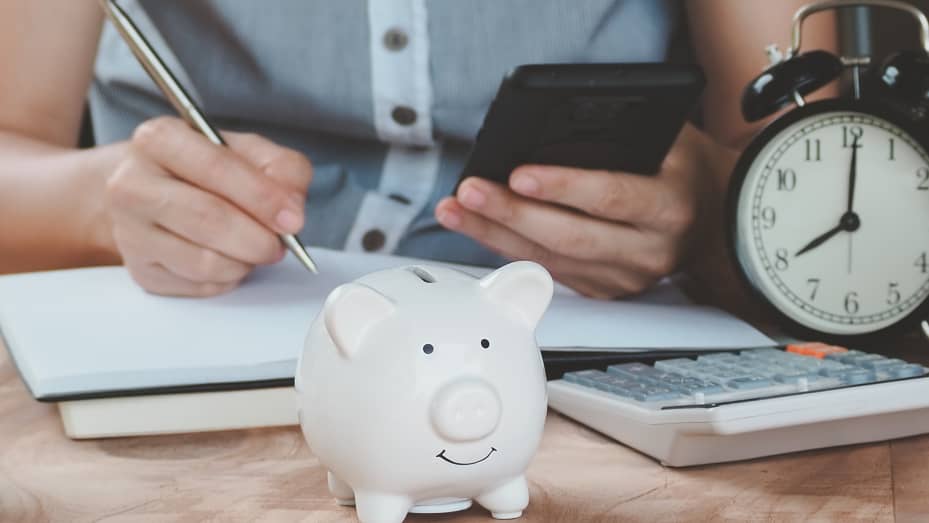Emergency Fund Building - How To Safeguard Your Finances
Robust financial planning is crucial since unexpected financial difficulties might emerge at any time in life's unpredictable path. To ensure one's financial stability, it is wise to engage in the practice of emergency fund building.
Author:Emmanuella SheaReviewer:Frazer PughJan 08, 2024705 Shares30.6K Views

Robust financial planning is crucial since unexpected financial difficulties might emerge at any time in life's unpredictable path. To ensure one's financial stability, it is wise to engage in the practice of emergency fund building.
This article will go over some tried-and-true methods for building an emergency fund, as well as some helpful pointers. You can protect your finances in the event of unforeseen turmoil by learning the ins and outs of emergency fund development.
What Is An Emergency Fund?
An emergency fund is a designated amount of cash reserved specifically for unforeseen expenses or financial emergencies. Examples of such unexpected situations include car repairs, home maintenance, medical bills, or a sudden loss of income.
Typically, emergency savings serve as a financial cushion for both significant and minor unplanned expenses that fall outside of your regular monthly budget and spending.
How Much To Save In Your Emergency Fund
Building an emergency fund is essential, and ideally, it should encompass three to six months' worth of expenses. Recognizing that reaching this target takes time, it's helpful to set achievable milestones. Start with modest objectives, like saving $5 per day, and gradually progress toward establishing a reserve that can cover several months' expenses.
Your monthly expenses and income will have an impact on the specific savings goal you set. Concentrate on accumulating enough to cover essential monthly expenses, such as housing, utilities, transportation, food, and credit card or loan payments, rather than aiming to replace your entire income.
Calculate your monthly costs, then multiply that sum by the desired number of months' worth of expenses you want to have in your emergency fund to determine your savings target. For individuals who are sole breadwinners, business owners, or those with variable incomes, it is advisable to aim for a more robust emergency fund, typically covering nine to 12 months' worth of expenses.
Where To Keep Your Emergency Fund
The optimal placement for your emergency fund is in a high-yield savings account, offering convenient access and competitive yields. It is advisable to choose banks or credit unions that ensure deposit insurance through the Federal Deposit Insurance Corp. (FDIC) or the National Credit Union Administration (NCUA).
Online-only banks present favorable options for emergency savings accounts due to their typically higher yields and lower fees compared to traditional brick-and-mortar banks. Given that fees can erode your emergency fund balance, it's crucial to compare savings rates and account features.
Don't feel obligated to stick with an account solely because of its longevity. A survey from January 2022 revealed that consumers tend to keep their savings accounts for an average of nearly 17 years. However, if your current account imposes monthly fees or offers a less-than-optimal annual percentage yield (APY), it's worthwhile to endure some inconvenience to secure a new account with better terms.
Steps To Get Your Emergency Fund Started
Create A Budget To Identify Saving Opportunities
According to a 2021 Debt.com survey, 8 out of 10 Americans incorporate budgeting into their financial practices. Many of these budgeters credit this habit with preventing debt accumulation or aiding in debt repayment.
To uncover opportunities for savings, it's crucial to grasp the details of your spending patterns. Budgeting enables you to allocate your income more effectively and identify areas where you can cut costs or better manage your expenses. Using a budgeting app proves valuable in this process, as it assists in calculating income and expenses and offers a comprehensive dashboard view of your financial status.
Determine Your Emergency Fund Goal
Based on a 2021 survey by the U.S. Bureau of Labor Statistics (BLS), the average household allocates approximately $3,490 towards essential needs like housing, transportation, and food. Establishing your emergency fund goal hinges on accurately calculating these necessary expenditures.
A budget functions as a financial roadmap, assisting in determining the monthly amount required to cover essential expenses. To arrive at this figure, add up monthly costs for housing, food, transportation, and other necessities. Multiply the sum by six to ascertain the amount needed to cover six months' worth of expenses. Achieving this six-month goal may take some time for most households.
Set Up A Direct Deposit
In a 2022 American Payroll Association survey, 9 out of 10 Americans reported receiving their pay through direct deposit. Direct deposit streamlines the process of depositing your paycheck and other funds directly into your checking or savings account, eliminating the need for manual check deposits.
You don't have to allocate all your funds to a single account; setting up a split direct deposit allows you to designate a specific amount for your emergency fund while the remaining balance goes to your checking account, or vice versa. Also, some savings apps can automatically transfer a percentage of your paycheck into a savings account. Automating this process not only simplifies the act of saving but also contributes to maintaining progress toward your savings goals.
Gradually Increase Your Savings
As per the Bureau of Economic Analysis, the U.S. personal saving rate hit 2.3 percent in October 2022, marking its lowest point since 2005. The personal saving rate represents the percentage saved from one's disposable income.
To enhance your savings rate gradually, consider elevating your contributions to your emergency fund by one percent or a fixed amount until you achieve your savings objective. Incremental increases can make the additional deposit into your checking account less conspicuous and more manageable over time.
Save Unexpected Income
A financial windfall refers to unexpectedly acquiring a substantial sum of money. Shockingly, the American Institute of Certified Public Accountants reports that 70 percent of those who experience such windfalls end up with no money remaining after just a few years.
When you come across unexpected money, like a tax refund, bonus, cash gift, inheritance, or lottery winnings, it's advisable to allocate at least a portion of it to bolster your emergency fund, unless you already have a sufficient one in place. This proactive approach helps ensure that unexpected funds serve a purpose in securing your financial stability.
Keep Saving After Reaching Your Goal
According to the BLS, the average annual cost of living is $66,928. The greater the amount you can contribute to your emergency savings, the greater your financial security in case of job loss or illness.
Certain emergencies may necessitate more than a standard six-month cushion. Instances such as prolonged unemployment or extended hospitalization underscore the importance of having an emergency fund with substantial savings, ensuring you have the financial resilience needed to navigate challenging circumstances.
Use A Bank Account Bonus To Jumpstart Your Savings
Banks frequently entice new customers with cash incentives when opening new checking or savings accounts, offering an opportunity to bolster or establish an emergency fund. Presently, banks are providing bonuses of up to $3,500 for those opening a new checking or savings account or for individuals referring friends or family members.
Optimizing your bank account balance involves not only seeking out these bonuses but also ensuring you're earning the best returns on your money. Online banks, with lower overhead costs due to the absence of physical branches, often offer more competitive rates.
To maintain financial organization and stay on course toward your goals, consider segregating specific funds. For example, allocate your emergency fund to a separate account from your vacation fund.
This segregation helps prevent unintentional withdrawals from your emergency savings for other purposes. Some bank accounts even allow you to distribute your money into different categories, or "buckets," facilitating effective financial management.
Importance Of An Emergency Fund
Consider these six advantages that an emergency fund can provide not only when unexpected bills arise but also on an ongoing, day-to-day basis:
Avoiding Debt Easily
Without an emergency fund, individuals often resort to using credit cards to cover unforeseen expenses when they lack readily available cash. This can lead to high-interest rates if the balance isn't promptly paid off.
The inability to make regular payments may result in the accrual of compound interest, significantly increasing the total cost. Conversely, with a built-up emergency fund, one can quickly access the needed funds for surprise expenses without resorting to debt.
Enhanced Emergency Management
Certain situations, like a plumbing issue or necessary vehicle repairs, require immediate attention. Delaying repairs due to a lack of funds can exacerbate the problem and lead to increased expenses. An accessible emergency fund allows for the immediate addressing of such issues, preventing further complications.
Additional Support In Unemployment
Job security is never guaranteed, and unexpected events such as injuries or layoffs can leave individuals without a regular income. This financial setback can disrupt household finances, but an emergency fund serves as a temporary financial buffer. It provides support while the unemployed individual searches for a new job or recovers from an injury.
Financial Resilience
When unexpected expenses or a prolonged loss of income occur, it can severely impact one's financial stability and ability to meet obligations. Missed or late debt payments resulting from such situations can harm credit scores and overall financial well-being.
However, having an emergency fund ensures the timely and full payment of essential bills, preventing the negative consequences of a financial shortfall. Experts often recommend building a substantial emergency fund covering three to six months' worth of living expenses, providing crucial financial stability during challenging times.
Reduced Spending Temptation
Allocating funds to an emergency fund, whether in a savings or money market account, creates a psychological barrier, making it "out of sight, out of mind." This setup diminishes the temptation to spend impulsively. Many consumers choose to automate regular transfers from their paycheck or checking account to their emergency fund, further reducing the likelihood of unnecessary expenditures.
Continuous Peace Of Mind
Money-related stress affects a significant portion of the population, with about two-thirds of Americans identifying it as a major source of anxiety, as per a recent survey by the American Psychological Association. With a well-established emergency fund, individuals can experience heightened financial security, alleviating the stress associated with unexpected expenses. The knowledge that there is a financial reserve to tap into when needed fosters a constant sense of peace of mind.
Drawbacks Of Emergency Funds
The downsides of maintaining an emergency fund include:
Impact On Retirement Savings
Channeling funds into an emergency fund can limit the capacity to contribute to other financial endeavors, such as retirement savings or mortgage repayment. Consequently, the existence of an emergency fund may hinder the pursuit of diverse financial goals.
Foregone Investment Opportunities
The present value of money often exceeds its future value. Allocating funds to an emergency fund may curtail the potential for higher returns achievable through investing in the stock market and benefiting from compound interest. In essence, emergency funds involve the sacrifice of utilizing funds to generate additional wealth over time.
Emergency Fund Building - FAQ
Where Can I Build An Emergency Fund?
An emergency fund is a savings cushion set aside for unexpected expenses like medical bills or car repairs to prevent financial hardship. Where can I build an emergency fund? You can build an emergency fund in a high-yield savings account or on short-term CDs offered by banks or credit unions.
Who Needs An Emergency Fund?
Emergency funds create a financial buffer that can keep you afloat in a time of need without having to rely on credit cards or high-interest loans. It can be especially important to have an emergency fund if you have debt because it can help you avoid borrowing more.
Can You Take Money Out Of An Emergency Fund?
A good rule of thumb, though, is to have three to six months' worth of living expenses saved in a special account. Unlike retirement funds where you may incur taxes for early withdrawals or investment funds where the money is not liquid, emergency funds are available to you at any moment.
Does Everyone Have An Emergency Fund?
Nearly one in three (30 percent) people in 2023 have some emergency savings, but not enough to cover three months of expenses. This is up from 27 percent of people in 2022. Nearly one in four (22 percent) U.S. adults say they have no emergency savings.
Is 25k A Good Emergency Fund?
With this number in mind, $25,000 would be more than enough to cover an entire year of expenses. If you prefer a year of savings, you can keep all that money in your emergency fund.
Conclusion
As a foundational skill for fiscal fortitude, the art of emergency fund building becomes apparent. Having an emergency fund is more than simply a financial precaution; it's a proactive move toward ensuring your financial future.
This has been clear as we've gone through the techniques and insights. Building and regularly adding to your emergency fund gives you the capacity to confidently confront unforeseen obstacles, as it guarantees that your finances will be stable and strong no matter what life throws at you.

Emmanuella Shea
Author

Frazer Pugh
Reviewer
Latest Articles
Popular Articles

